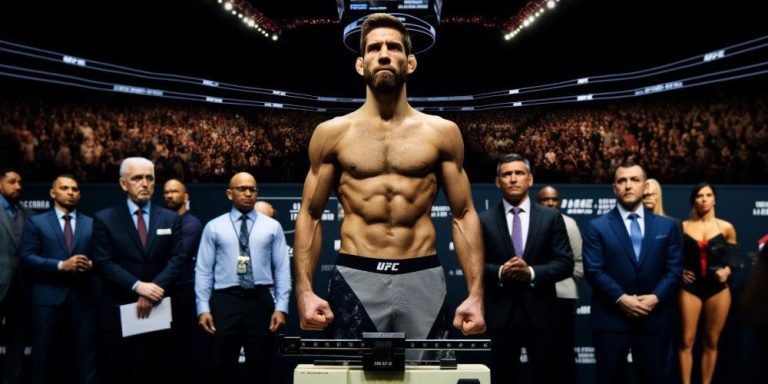When most fans think about UFC fighters, they picture brutal knockouts, intense grappling, and world-class athleticism inside the Octagon. But behind every performance is something far less flashy yet equally important: nutrition. For UFC athletes, food isn’t just fuel — it’s a strategic weapon that can make the difference between winning and losing.
In this article, we’ll break down why nutrition matters so much for UFC fighters, what a typical diet looks like, and how proper food choices help fighters train, recover, and compete at the highest level.
Why Nutrition Matters in the UFC
A UFC fighter’s body is their greatest tool. Just like you wouldn’t put low-quality fuel into a race car, fighters can’t afford to fuel themselves poorly. Proper nutrition impacts:
- Energy levels during training and fights
- Strength and endurance to perform across five hard rounds
- Recovery between workouts and after fights
- Mental sharpness and focus inside the cage
- Weight management, including safe weight cuts before fights
Without the right balance of food and hydration, even the most skilled fighter would struggle to compete.
Building Blocks of a Fighter’s Diet
1. Proteins for Muscle and Recovery
Protein is essential for repairing muscle tissue after grueling sparring sessions or strength training. UFC fighters often rely on lean meats, fish, eggs, and plant-based protein sources like lentils or beans. Protein shakes are also common to support quick recovery.
2. Carbohydrates for Energy
While many athletes fear carbs, fighters need them. Carbs fuel long training sessions and provide explosive energy for fight night. Brown rice, oats, potatoes, fruits, and vegetables are staples in a fighter’s meal plan.
3. Fats for Endurance and Brain Health
Healthy fats like avocados, nuts, seeds, and olive oil keep hormones balanced and provide lasting energy. They also play a role in brain function — something every fighter needs to stay sharp in the cage.
4. Micronutrients and Hydration
Vitamins, minerals, and electrolytes are just as important. Without them, muscles cramp, endurance drops, and the immune system weakens. Fighters often work with nutritionists to make sure they’re never deficient.
The Science (and Stress) of Weight Cutting
Perhaps the most talked-about part of UFC nutrition is weight cutting. Fighters usually drop several kilos in the week before a fight to make their weight class. This is done through strict diet control, water manipulation, and sometimes sauna sessions.
Done correctly, it helps fighters step into the Octagon bigger and stronger than their opponents. Done poorly, it can drain energy and even be dangerous. That’s why most UFC athletes now work with professional dietitians who plan every detail of their fight-week nutrition.
What a Typical UFC Fighter’s Meal Plan Looks Like
Here’s a simplified look at how fighters often structure their diet during training camp:
- Breakfast: Oatmeal with fruit, eggs, and green tea
- Lunch: Grilled chicken, brown rice, and steamed vegetables
- Snack: Protein shake with nuts or a smoothie
- Dinner: Salmon with quinoa and a salad
- Post-training recovery: Protein shake + banana
Of course, every fighter’s plan is different depending on their weight class, metabolism, and training intensity.
Nutrition for Recovery and Longevity
The UFC schedule is demanding, and fighters can’t afford to stay sidelined with injuries or fatigue. Proper nutrition speeds up recovery, reduces inflammation, and helps athletes stay in peak condition for years. Foods rich in antioxidants (like berries and leafy greens) and omega-3 fats (like fish) play a huge role here.
Famous Examples
Many top fighters credit nutrition for their success:
- Georges St-Pierre followed a strict diet to maximize endurance and stay lean throughout his career.
- Conor McGregor works with a nutritionist to balance performance with making weight safely.
- Khabib Nurmagomedov was known for disciplined eating habits that fueled his dominance in the lightweight division.
These examples show that the best fighters don’t leave nutrition to chance — they treat it as a core part of their fight strategy.
FAQs About UFC Fighter Nutrition
Q1. Do UFC fighters eat junk food?
Generally, no — at least not during training camp. Fighters may enjoy a cheat meal after a big fight, but during preparation, junk food is avoided because it slows recovery and adds unnecessary weight.
Q2. How much protein does a UFC fighter need?
Most UFC fighters aim for about 1.5–2 grams of protein per kilogram of body weight daily. This supports muscle repair and growth after tough workouts.
Q3. Do all UFC fighters cut weight?
Almost all do, but the degree varies. Some cut only a few pounds, while others drop significant weight before weigh-ins. Safe weight cutting is closely managed by nutritionists and coaches.
Q4. What supplements do UFC fighters use?
Common supplements include whey protein, BCAAs (branched-chain amino acids), creatine, fish oil, and electrolyte drinks. All supplements must comply with USADA anti-doping rules.
Q5. Can beginners follow a UFC-style diet?
Absolutely. Even if you’re not fighting professionally, focusing on clean proteins, whole carbs, healthy fats, and hydration can boost fitness and overall health.
Final Thoughts
The role of nutrition in a UFC fighter’s career cannot be overstated. It’s the foundation of energy, endurance, recovery, and longevity. While fans may only see the final product inside the Octagon, every punch thrown and every takedown defended is powered by countless meals carefully planned behind the scenes.
For German UFC fans and aspiring fighters, the lesson is clear: success in MMA doesn’t just come from hours in the gym — it also comes from discipline in the kitchen.
Further Reading:


